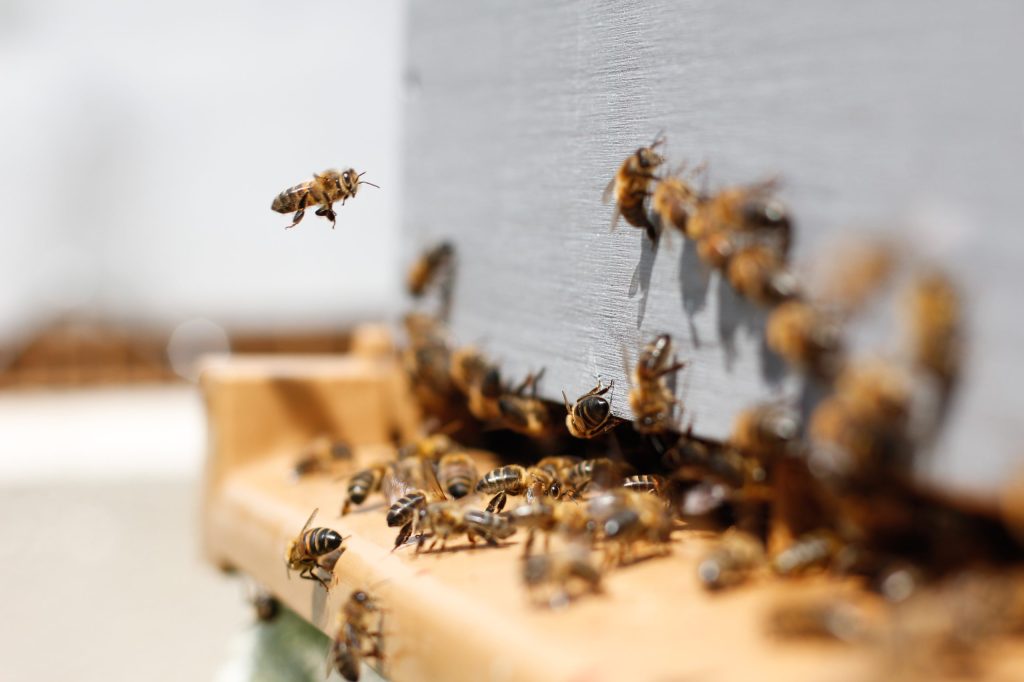Bees populate the roofs of Wasserstadt Mitte

• Bee colony on the roof of a building in Wasserstadt
• Project focusing on sustainability and animal welfare
• Awareness programme on the relevance of bees to our ecosystems
Pilot project Bienenstock (Beehive)
In addition to the residents of its approximately 700 apartments, Wasserstadt Mitte is now also home to a bee colony. On the initiative of the Adler Group, a beehive was installed on one of the roofs. The focus of the pilot project, which started in 2022, is not just on sustainability. Raising awareness among adults and especially children about the vital importance of bees for the urban space is an important aim of the project. An in-house workshop for interested staff and a workshop for children in a nearby children's daycare centre were offered. As well as information and unforgettable memories, the children have been able to take home honey jars from the beehive. An information service is also being set up for residents in the neighbourhood.
Bees are fundamentally important to humans and nature
Although there is certainly honey on the breakfast tables of Europacity’s residents, many do not know that bees, nature’s third most important working animal, are essential for almost all ecosystems. By pollinating flowering plants, they ensure their continued existence and diversity. Around 80% of wild and cultivated plants are pollinated by them. They ensure high-yield harvests, a balanced biodiversity and a diversity of food. By pollinating plants, they also increase biodiversity in Europacity’s urban environment. However, bees are threatened by ever-growing monocultures and the increasing use of pesticides in rural areas. This is less of a problem in urban areas such as Berlin because different flowering plants are accessible. A general increase in the number of beekeepers in the city is also being observed. The diversification of the diet through different flowering plants also widens the food spectrum and boosts the immune systems of the urban bees. Bees in urban areas are also less exposed to harmful pesticides. The project in Wasserstadt Mitte therefore promotes not just sustainability but also animal welfare in practice. This is great news!